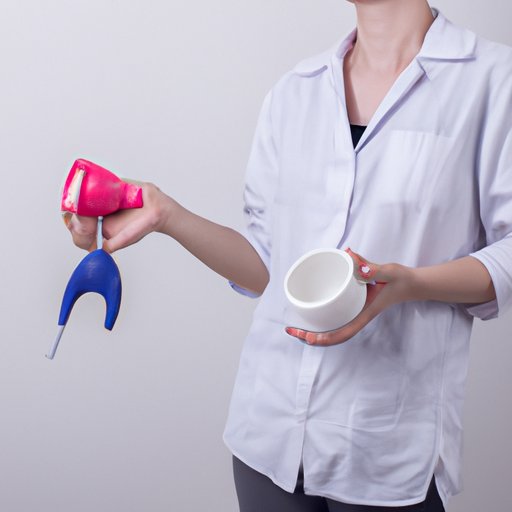Introduction
It’s normal to have to go to the bathroom several times a day, but if you find yourself peeing more than usual or having difficulty controlling your bladder, it can be disruptive and uncomfortable. Excessive urination can be caused by a variety of factors, such as drinking too much caffeine or not getting enough exercise. Fortunately, there are steps you can take to reduce your urinary frequency and get back to feeling comfortable.
Reduce Caffeine Intake
Caffeine-containing drinks like coffee, tea, and energy drinks are known to be diuretics, meaning they cause the body to produce more urine than usual. This can lead to increased urination and a feeling of urgency when you need to go. If you find that you’re having trouble controlling your bladder, reducing your intake of caffeinated drinks may help.
If you’re used to drinking multiple cups of coffee a day, start by cutting back to one cup. You can also switch to decaffeinated versions of your favorite drinks, or try herbal teas like chamomile or peppermint. Switching from energy drinks to water or low-sugar juices can help reduce your caffeine intake as well.
Stay Hydrated
Drinking plenty of water is essential for staying healthy, and it can also help reduce urinary frequency. Staying hydrated helps keep your bladder in balance, and it can help prevent the urge to go more often. Aim to drink at least 8 glasses of water a day, and avoid sugary drinks like soda or juice.
It’s also important to note that drinking too much water can be just as bad as not drinking enough. Too much water can lead to an overproduction of urine, so make sure you’re drinking enough but not too much. It’s also helpful to limit your liquid intake in the evening to avoid having to get up to go to the bathroom during the night.
Exercise Regularly
Regular exercise can help the body stay in balance and improve bladder control. Exercise increases blood flow to the muscles, which can help strengthen them and reduce urinary frequency. Aim for at least 30 minutes of moderate physical activity a day, such as walking, jogging, biking, or swimming.
Strength training can also be beneficial, as it helps build muscle and improve overall fitness. Weight lifting, yoga, and Pilates are all good options for strength training. It’s important to talk to your doctor before starting any new exercise routine, especially if you have any underlying medical conditions.
Practice Kegel Exercises
Kegel exercises are a type of exercise specifically designed to strengthen the pelvic floor muscles, which can help reduce urinary frequency. To do a Kegel, squeeze the muscles you use to stop the flow of urine, hold for 10 seconds, then relax for 10 seconds. Repeat this process 10 times, three times a day.
It’s important to practice Kegels regularly to see results, and it can help to set reminders on your phone or calendar. Over time, you should notice an improvement in bladder control and a decrease in the number of times you need to go to the bathroom.
See a Doctor
If you’ve tried the above methods and still find yourself having trouble controlling your bladder, it’s important to talk to your doctor. A doctor can help identify any underlying medical conditions that may be contributing to your excessive urination. Depending on the cause, there may be treatments available to help alleviate your symptoms.
Your doctor may recommend medications to help reduce urinary frequency or lifestyle changes to help manage your condition. It’s important to follow your doctor’s instructions and seek medical help if needed.
Conclusion
Excessive urination can be disruptive and uncomfortable, but there are steps you can take to reduce your urinary frequency. Reducing your caffeine intake, staying hydrated, exercising regularly, and practicing Kegel exercises may all help. If you’re still having trouble controlling your bladder, it’s important to talk to your doctor for potential treatments.
Remember, it’s normal to have to go to the bathroom several times a day. But if you find yourself peeing more than usual or having difficulty controlling your bladder, these tips may help you reduce your urinary frequency and get back to feeling comfortable.


